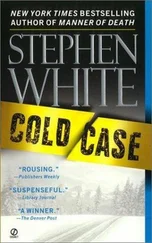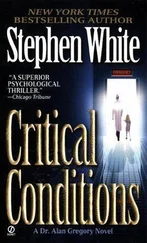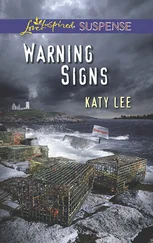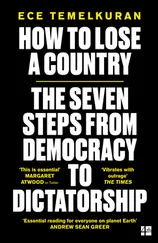I argued back. "But if it were child abuse that I was hearing about, it wouldn't make any difference. Hearsay or no hearsay, right?"
"The child-abuse exception is handled specifically under Colorado law, Alan. This isn't."
I couldn't argue with the point that Raymond was making, so I moved the argument in a different direction, saying, "What if what's going on is that my patient actually wants me to turn her son in? What if that's her agenda with me? She can't stop him herself, she can't bring herself to turn him in, so she wants me to do it for her. She keeps talking about the Klebolds and the Harrises. There's a message there that I can't ignore."
He didn't respond right away, so I persisted. "The parents of the Columbine murderers may have failed their children and their community with their ignorance or their denial of what their children were planning, Raymond. But the Jefferson County Sheriff's Department had enough information, too. The family of a kid that Klebold and Harris threatened told the sheriff's department all about the threats and about the crap that was on Harris's Web site. The sheriff even linked Harris to a pipe bomb that somebody had exploded and went ahead and drafted an affidavit for a search warrant for his house. That was a year before the killings, but the sheriff didn't follow through with any of it."
"And you don't want to be accused of making the same mistakes as the Jefferson County sheriff?"
"No, I don't, Raymond. I don't. One of those two, Harris or Klebold, was in psychotherapy, too. He was seeing a psychologist. What if he actually told the guy he was planning to kill some students at his high school but didn't mention anyone in particular? Are you saying that the psychologist didn't have an ethical obligation to report that?"
"We don't know what that psychologist knew."
"But I know what I know."
"Do you?"
I said, "I don't want people to die when I might have had enough information to prevent their deaths."
"Especially your wife."
"Of course, especially my wife."
"You're not even certain she's been threatened, are you?"
"I can't risk it, Raymond. I can't."
"I suggest you step back and see the parallel process, my friend."
"What are you talking about, Ray?"
"Your patient is struggling with whether or not she has enough information to do what most parents consider unthinkable-turning her own son in to the authorities because she believes he may be planning an unspeakable atrocity. Go ahead and underline 'may.' Remember Styron? Sophie's Choice ? This is one of those. You, too, are struggling with whether or not you have enough information to do the unthinkable-breaching your patient's confidentiality and turning this woman's son in to the authorities because you believe he may be planning an unspeakable atrocity. Go ahead and underline 'may' one more time."
I said, "The moral obligations are clear for both of us, Ray. My patient should act. Failing that, I should act."
"Are the moral ambiguities so invisible to you? Are you in any position to make that judgment? I think I've made a damn good case that your objectivity is compromised, Alan. The bottom line is that you shouldn't be treating this woman at all. Your motivation as her therapist is not limited to assisting her with psychological concerns. Not at all. That alone should cause you to excuse yourself. Another therapist, an objective therapist, should make the decision about what to do with these supposed threats."
"How can I turn my back on what I know?"
"You know a mother's fears. That's all that you know. I don't think that's enough."
"She's telling me something, Raymond. She's telling me enough."
Raymond stood. He said, "I've not seen you like this before. You seem to want to believe that the rules don't apply right now."
I could no longer keep the intensity I was feeling out of my voice. "What rules? There aren't any rules that apply to this situation. Ethical standards evolve, Raymond, we both know that. There are always new situations developing that the old rules don't address."
"And this is one?" he asked skeptically. "You're sure of that?"
"Before Tarasoff , therapists couldn't even warn potential victims that they'd been threatened. Now we can-we must. That's a change. That's an ethical evolution. Circumstances required it."
"And you want the freedom to decide that this is the foundation for another ethical evolution? Tarasoff wasn't the result of a rogue therapist rewriting the rules, Alan. It was a California Supreme Court decision."
I scrambled to my feet. "I've never been in a position like this before. You have to admit these circumstances are unique."
His eyes flaring, he countered, "You have a patient who needs an objective outlet for exploring an issue that is troubling her. What, I ask you, is unique about that circumstance? It happens to both of us every day. The only thing that's unique about this situation is that you've decided to substitute your judgment for your patient's. How long do you think our profession can survive therapists doing that ?"
"You know exactly what I mean. This is… different."
He dabbed at one corner of his mouth with the paper napkin. "Then act like it's different, Alan. The way I see it is that you're trying to straddle a high fence and you can't seem to get either foot on the ground. On one side you're making a case that your concerns are so great that they warrant your violating ethical principles that I know you hold dear. On the other side you're apparently not quite concerned enough about any of it to just go to the police and state your case. You have to get off the damn fence one way or another. Either it's a serious threat and you put your judgment ahead of your patient's, or it's not a serious threat and you shut up and help her with her struggles."
I pressed. "How would you get off the fence? If it were Cynthia in danger? Or one of your kids?"
"Is Lauren really in danger? Is Grace? Are you certain of that?"
"No, I'm not certain."
"Then your question about what I would do if it were Cynthia or one of my kids is too facile. I get to answer your question in the abstract. I get to play 'What if?' You? You have to make your decisions in the here and now when your head is full of nothing but I-don't-knows."
He stared at me while I struggled to reply. Finally, he said, "Where the heck did I leave my car?"
A lthough I'd seen Royal and Susan Peterson'shome plenty of times on the local television news in the days since Roy's murder, I hadn't been there again in person until Friday morning as I was parked across the street sitting in the front passenger seat of Sam Purdy's red Jeep Cherokee. The floor mats of Sam's old car were so caked with dried-on dirt and gravel that I couldn't tell whether they were made of carpet or rubber.
Sam had been quiet since he'd picked me up at my office. Now he'd started humming, never a good sign with Sam.
Out of nervousness as much as anything, I said, "It's just like seeing Plymouth Rock."
Two or three seconds passed before he said, "What the hell are you talking about?"
"Years ago, I drove to Plymouth Rock from Boston-it's a long way. The day I was there it was raining pretty good. You make the long drive, you find a place to park the car, you get out, you walk to the shore, you stand behind a little iron fence, you look down, and what do you see? You see a rock. That's it. A rock. Not a big rock, not an interesting rock. We're not talking Gibraltar. It's just a rock."
"Yeah, your point?"
"That's kind of how I feel right now, seeing Royal and Susan's house. I expected-seeing it in person after the murder, all that's happened there-that it would feel different, somehow, than it used to. More important, more moving. I don't know. But… it's just a house."
Читать дальше












